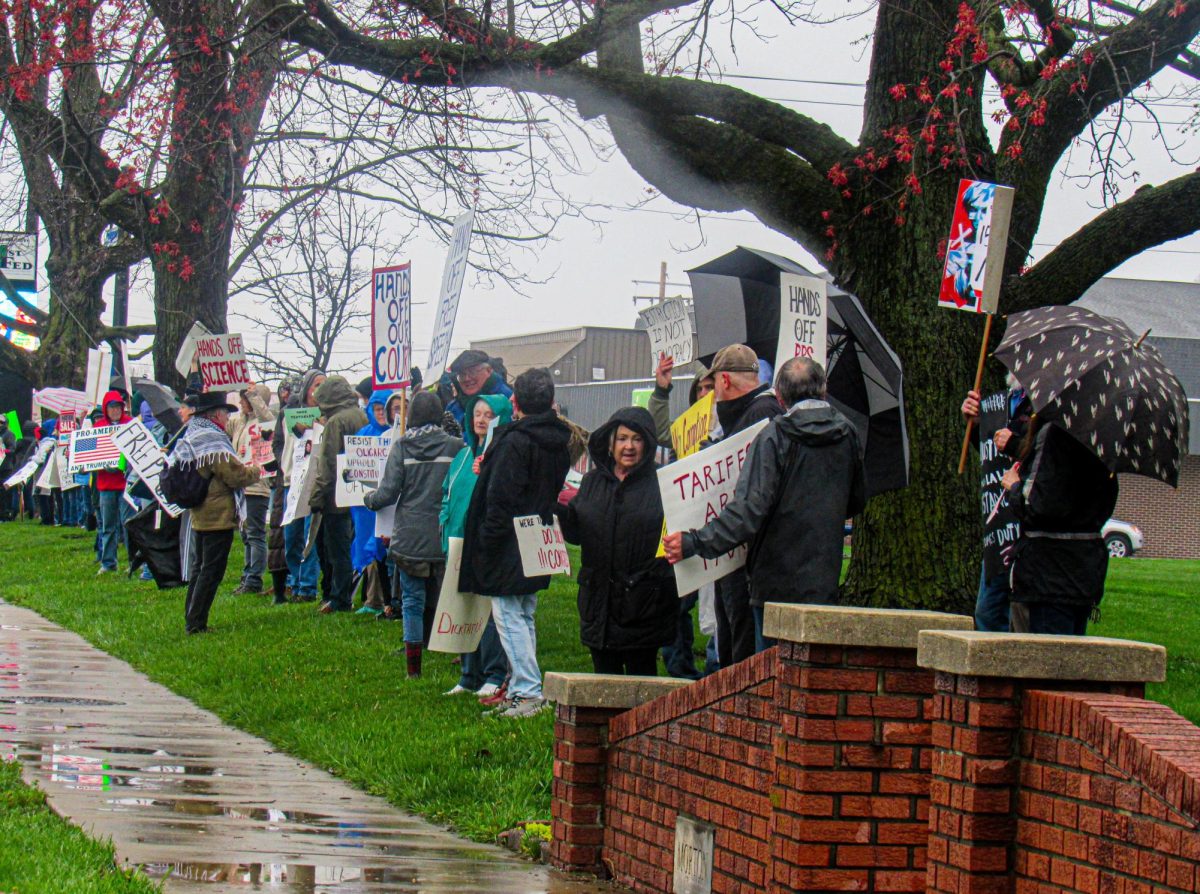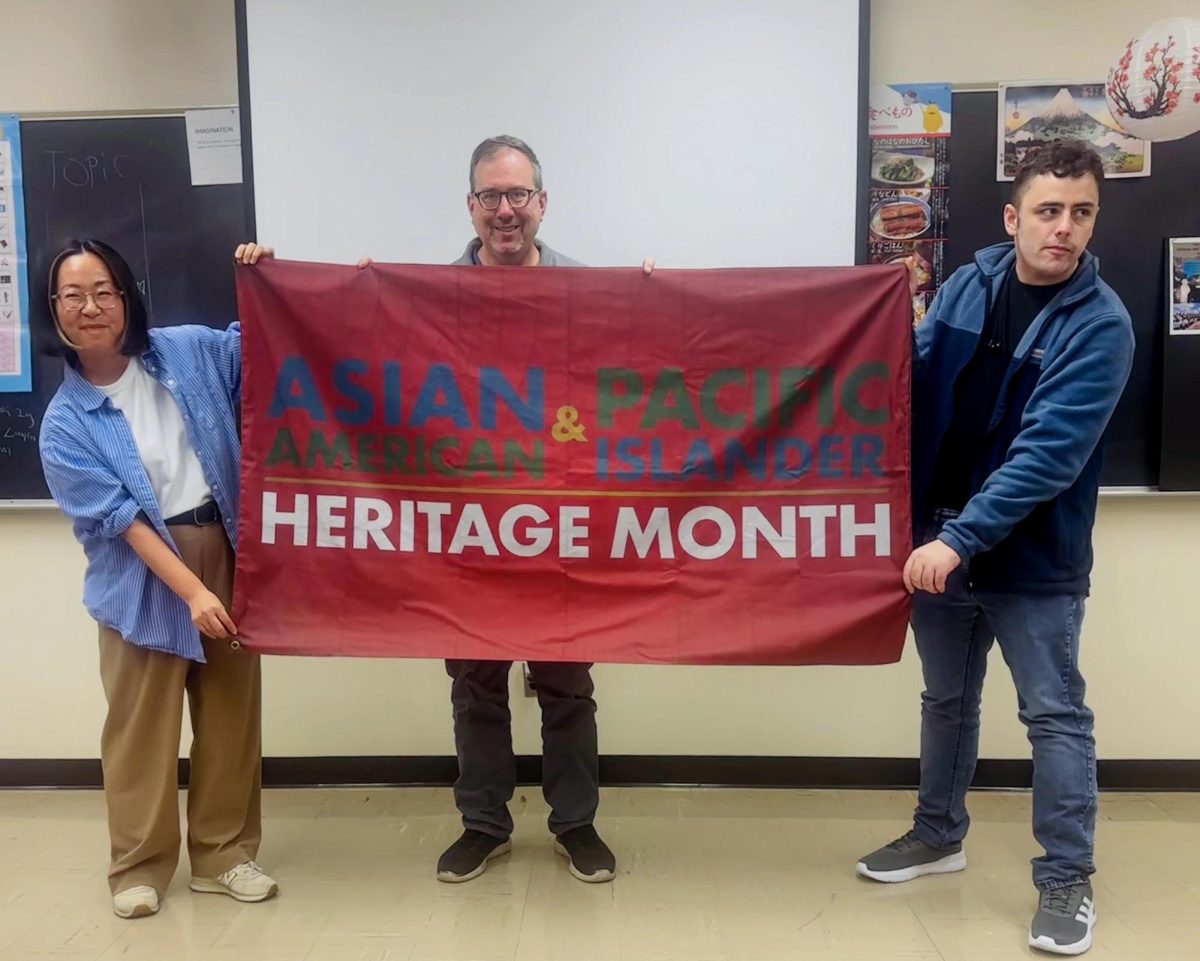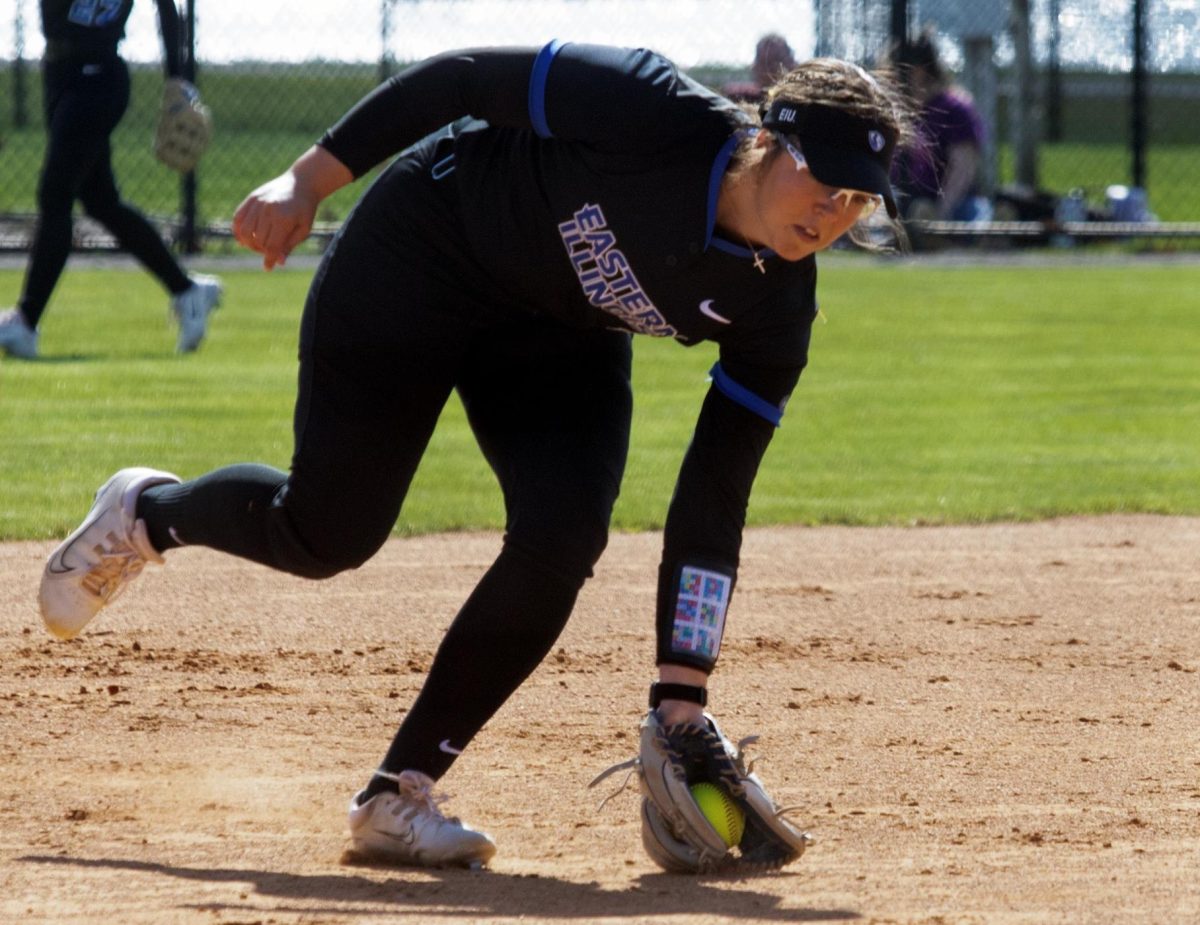NCA self-study team reviews all five criterion, including reviewing community service, learning goals, deferred maintenance
The group responsible for the North Central Association 10-year self-study presented a review of the five criterions at its second-to-last meeting March 7.
The overall goal of the meeting was to review the criterion overall, each of which has received a meeting dedicated to it throughout the fall and spring semesters.
Chapter 1
The first criterion, presented by Jennifer Sipes, the special assistant to the vice president of student affairs and the chair of criterion one, reviewed the university mission.
Sipes said she had the privilege of presenting a “happy” chapter of the NCA report.
Chapter one includes information on minority programing from residence life staff training and programing to the “EIUnity Diversity Conference, the culture heritage months on campus and more.
She said she also has an “unhappy” part of the chapter as well.
“We recognize that we certainly still have concerns as an institution and as a community regarding the treatment that minority students may feel on campus and the community and what they may experience,” Sipes said.
Sipes said the university, in conjunction with Charleston Mayor Larry Rennels, has taken steps to address these “concerns” about minority students.
“As a result of that, President (Bill) Perry established an advisory committee on diversity at the beginning of the fall semester that is a joint working committee between President Perry of the university and Mayor Rennels of the community.”
She also said the university completed a total of 118,000 hours of community service during the last academic year.
Chapter 2
Jeff Stowell, a psychology professor and the co-chair of the entire self-study, then spoke about how the university deals with “Ethical and Responsible Conduct” in the place of the absent co-chairs of chapter two of the study.
Stowell also talked about how, during a survey last fall, approximately 87 percent of respondents said the institution “operates ethically and with integrity.”
More than 2,500 participants, including students, faculty and staff, took the survey and provided information regarding the perception of the university overall, as well as the board of trustees operating ethically.
Chapter 3
The chapter three presenters, Bonnie Irwin, the dean of the college of arts and humanities, and Mike Mulvaney, a recreation administration professor, said the chapter addresses quality of courses “wherever and however” the courses are delivered.
“We have another happy chapter, which is we get to talk about the things we are good at, which is delivering a high-quality education,” Irwin said.
Irwin said she addresses academic quality in multiple ways, such as reviewing courses through a rigorous curriculum process when it is started and again when it moves to an online course.
“We walked through the way the different curriculums are formatted at the undergraduate and graduate level, that we have distinct learning goals at each level and that everyone knows what they are (at the undergraduate and graduate level),” Irwin said.
Irwin also said the study abroad office has become more “rejuvenated with more rigor” during the past 10 years.
Mulvaney also brought up how Eastern has many new developments and projects such as the renewable energy center, the Center for Academic Technology Support, the textbook rental center, the Honors College and more.
Chapter 4
Rebecca Throneburg, a communication disorders and sciences professor, and Karla Sanders, the director of the Center for Academic Support and Assessment, then presented chapter four, which encompasses “Teaching and Learning: Evaluation and Improvement.”
Throneburg said the chapter four highlights overlap chapter three’s, such as the hiring tenure processes.
“Obviously, since we are both teaching and learning, we are going to share some of the highlights that we say that Eastern does do well,” Throneburg said.
She then talked about how graduation and retention rates are “some of the highest in the state” compared to similar universities.
In regards to the credit hour policy, Throneburg said she, as a member of the Council on Academic Affairs, is working on updating the policies and guidelines through the implementation of new learning goals.
Chapter 5
The fifth and final chapter of the self-study reviews “Resources, Planning and Institutional Effectiveness” of Eastern.
David Boggs, a business professor, and Mike Maurer, a member of the business affairs office, talked about how a myriad of cuts are currently being considered at Eastern.
Then the two talked about the $250 million in differed maintenance around campus, including all infrastructures, which represents approximately half other the university’s overall investment in infrastructure and equipment.
Maurer then said Eastern’s credit rating has been “downscaled,” which will affect the university in taking out large loans.
“The cost of borrowing is going to increase,” Maurer said.
The group also talked about a decrease in high school graduates, a lack of state funding and “unfavorable” demographics affecting Eastern’s recruitment during the past 10 years.
The NCA self-study will reconvene for the final meeting at 7:30 a.m. April 18 in the Seventh Street Underground. The final two meetings are being combined to one because members will have access to the rough draft on April 1.
Jack Cruikshank can be reached at 581-2812 or jdcruikshank@eiu.edu.






![[THUMBNAIL EDITION] (From left to right) Head football coach Chris Wilkerson works with his son student assistant coach Peyton Wilkerson at football practice at O'Brien Field on the Eastern Illinois University campus on Thursday.](https://www.dailyeasternnews.com/wp-content/uploads/2025/04/FB_25_O-1-e1744234837107-1200x596.jpg)




![[Thumbnail Edition] Charleston High School sophomore Railyn Cox pitches the ball during Charleston's 8-7 win over Flora High School on Monday, March 31.](https://www.dailyeasternnews.com/wp-content/uploads/2025/04/SBHS_01_O-1-e1743982413843-1200x1023.jpg)



![[Thumbnail Edition] Senior Foward Macy McGlone, getsw the ball and gets the point during the first half of the game aginst Western Illinois University,, Eastern Illinois University Lost to Western Illinois University Thursday March 6 20205, 78-75 EIU lost making it the end of their season](https://www.dailyeasternnews.com/wp-content/uploads/2025/03/WBB_OVC_03_O-1-e1743361637111-1200x614.jpg)




















![[Thumbnail Edition] Eastern Illinois softball senior infielder Briana Gonzalez resetting in the batter's box after a pitch at Williams Field during Eastern’s first game against Southeast Missouri State as Eastern split the games as Eastern lost the first game 3-0 and won the second 8-5 on March 28.](https://www.dailyeasternnews.com/wp-content/uploads/2025/04/SBSEMO_11_O-1-e1743993806746-1200x692.jpg)

















![The Weeklings lead guitarist John Merjave [Left] and guitarist Bob Burger [Right] perform "I Am the Walrus" at The Weeklings Beatles Bash concert in the Dvorak Concert Hall on Saturday.](https://www.dailyeasternnews.com/wp-content/uploads/2025/03/WL_01_O-1200x900.jpg)
















